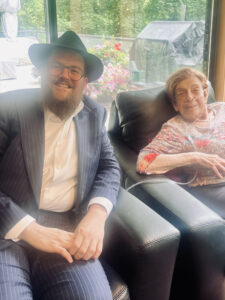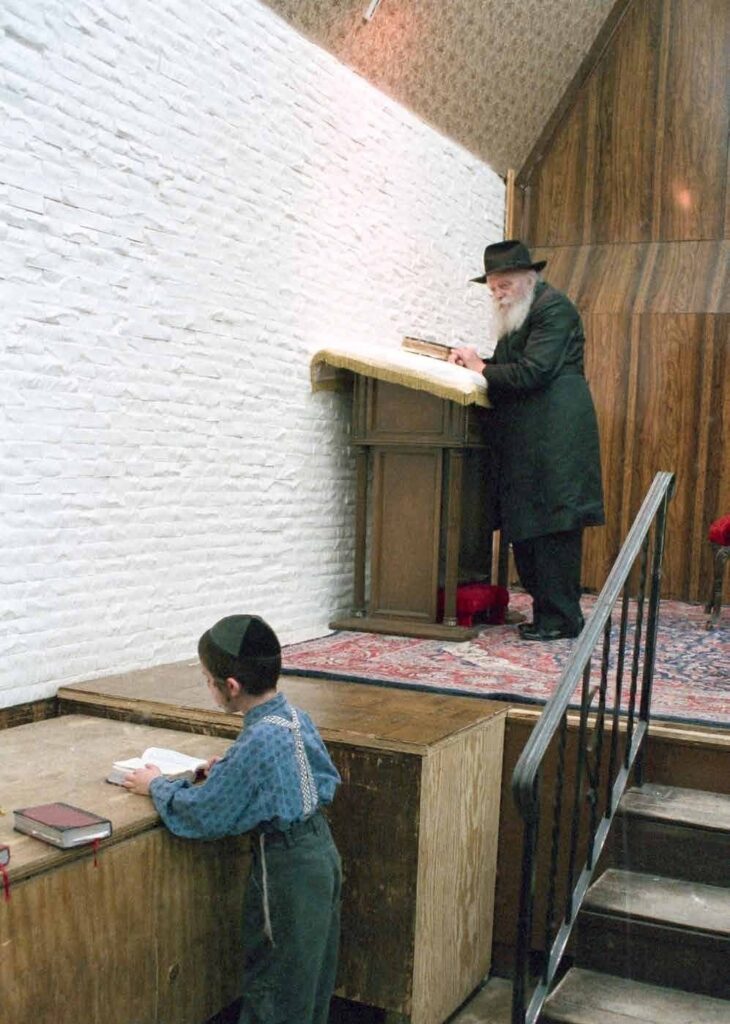Musings Of A Shliach From Montana


Chibas Eretz Yisrael: A love affair with Israel.
We can’t explain it, it doesn’t always make sense, but like true lovers, the Jewish people are connected at our core, and infatuated, with the Holy Land, the land which Hashem gave to Avraham Avinu and his descendants. We try to visit, we follow every piece of news associated with Eretz Yisrael, we pray for our brothers and sisters dwelling there, and we hope to return there permanently with the coming of Mashiach now.
Last week, when Israel started its invaluable campaign to eradicate the Iranian threat, we knew that there would be a heavy response. Sadly, Jews have lost their lives, many are injured, and homes and neighborhoods have been destroyed. War continues to this very moment. My Aba and his wife Leah live in Yerushalayim and for the first time that I could remember, it sounds genuinely scary as the missiles and shrapnel land close to their home.
Yet, despite the hardship of maintaining our Jewish presence in Israel, we are undefeated. Undefeated in the sense that we won’t back down, won’t give up, and won’t surrender. We don’t act like cowards; we are united in our hope for victory and recognition that Israel is the homeland of the Jewish people and it will be that way forever. Sometimes we encounter Jews who lack a certain love for Israel, who think that a strategy of appeasement with the enemy is the way to go, as in “If we just gave back some more land,” but this week’s Torah portion, Shelach, teaches us that we must stand tall and strong in our understanding that the land is ours, period, and we won’t give it away to anyone else no matter how compelling it may sound.
This Shabbos we will read about the story of the spies who had a mission from Moshe Rabbeinu to seek out the best possible entry path to Israel. Instead, they returned with an unsolicited and ungodly message that the land can’t be conquered as the challenges are too great. Hashem had already told the Jews that they would enter Israel, yet a bunch of men with a personal agenda infiltrated their mission and it resulted in thirty-nine additional years in the desert. They saw themselves as “grasshoppers” and were certain that the giants in Israel saw them that way, too. It starts with an inferiority complex, questioning our value and special connection to Hashem, and results in catastrophe.
Just last week my brother-in-law Rabbi Mendel, who is now part of team Chabad in Bozeman, was out at Safeway with his wife Brocha. While there, they ran into two Jews: Jack, who has a vacation home in Big Sky, and Eyal, who has a second home in Bozeman since his children attend MSU. Jack told Mendel how his brother Bob and sister-in-law Sandy are Chabad-goers (indeed they are our dear friends, though they live in Billings), but Eyal mentioned that he heard about “Rabbi Chaim” but has never made it over for any services or programs. Less than 48 hours later, Eyal walked into shul on Shabbos morning for davening, received an aliyah, and stayed all the way through Shabbos Kiddush lunch. He said he would be back next time he’s in Montana. It’s simple: When he saw a young Jewish man adorned with a yarmulke and tzitzis along with his modestly dressed wife, he automatically saw the beauty of his Jewish family, his people, and felt there was an opportunity to connect with fellow Jews, and the rest is history.
Last week I traveled to Detroit for a day to comfort my friend Reb Mendel Scharf, whose mother Chana passed away. Mendel lost his father during Aseres Yemei Teshuvah of 1989, when he was very young, and his mother Chana raised him and his three siblings alone, but not really. For reasons unbeknown to us, from 1989 until March of 1992 when the Rebbe, zt’l, suffered his first stroke, the Rebbe took the Scharf kids under his personal wing and looked after them as if they were his own children. He would greet them upon entering shul, wave to them upon exiting shul, would give them food items and l’chaim from his farbrengen table, and would gaze at them while they said Kiddush and so much more.
Mrs. Scharf, who I had the honor of knowing, instilled in her children an unbreakable love for Judaism and its truth. To them the world’s perspective is irrelevant, it’s always about what Hashem wants and what the Rebbe said about a particular matter. They don’t feel inferior to any other nation, they don’t see “Goyishkeit” and yearn for any part of it, they seek truth and await Mashiach like their mother did, with every fiber of their being. Interestingly, on her gravestone, which she wrote up before she passed, it says “Vehaya mechanecha kadosh, hatzna leches in Hashem Elokecha, kedusha v’taharah, derech Yisrael Sava.” It must be the four ideas with which she lived her life and raised her children: “The Jewish community must remain holy, we should serve G-d without fanfare, holiness, and purity, following the vital traditions of our ancestors.”
This Shabbos is Shabbos Mevarchim Tammuz, as we usher in the first formal month of summer. It is said that Tammuz is the acronym for “Zemanei Teshuva Memashmeshin Uvaim,” which means, “the times of teshuvah (return to Hashem) are coming up.” Why “times” in the plural and not “time” in the singular? Rav Shaul Alter, shlita, explains that some people like doing teshuvah at a specific time, like Elul, because they need to be on G-d’s good side before they are judged, signed, and sealed for the new year. They figure Elul is good enough, this way they can “enjoy” the summer and its leniencies in Yiddishkeit and then head home before Yomim Noraim for teshuvah. Comes along Torah and teaches us “zemanei,” the times for teshuvah are many, including before we head out on summer trips, to camp, to the Catskills and to our vacation in Europe. Just reading the stories of the Jews in the desert, the spies, Korach and his rebellion, the kvetching of Klal Yisraelevery fifteen minutes, these should all awaken us to do teshuvah now without waiting for the formal teshuvah of Elul.
While in Detroit, I made a quick visit to Dorris “Devorah” Chandler, mother of my dear friend and beloved Bozeman congregant Paul (Pesach). Dorris is ninety-four, or as she likes to say “forty-nine,” and she’s on the ball. Her love for being Jewish, her love for Judaism, her love for Israel is so special. She and her late husband Maurice “Moshe” (famed for the documentary “Three Minutes: A Lengthening”) raised their family in Michigan and instilled in their children an incredible Jewish pride.
As we read the story of the spies let us resolve to stand tall. Don’t let them push you into hiding, don’t wear that baseball cap instead of the yarmulke, don’t be afraid to daven in the airport, don’t be a Jew with wobbly knees; we are the chosen nation and must be comfortable in being a member of a nation of holiness.
Am Yisrael Chai!
Rabbi Chaim Bruk is co-CEO of Chabad Lubavitch of Montana and spiritual leader of The Shul of Bozeman. For comments or to partner in our holy work, e-mail [email protected] or visit JewishMontana.com/Donate.












